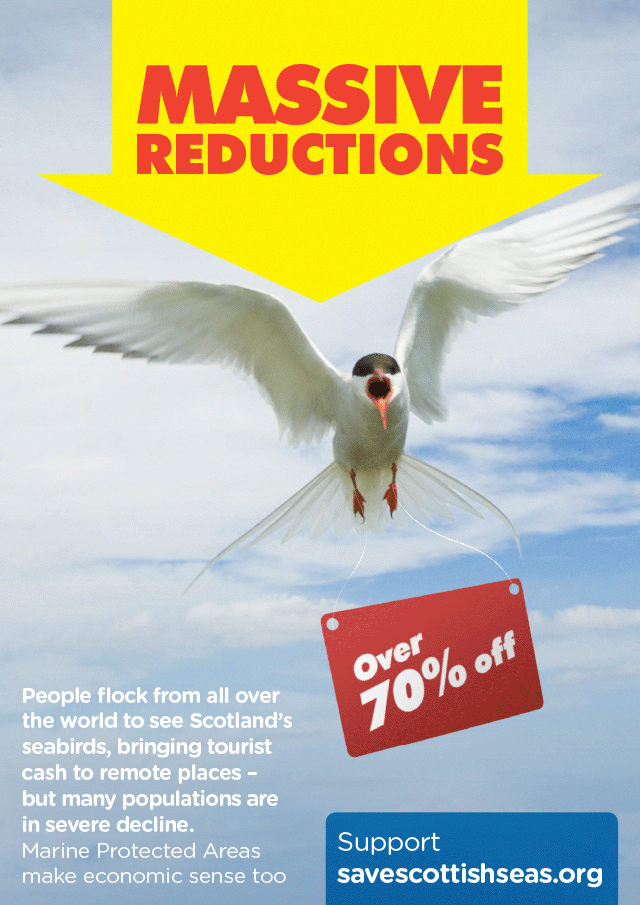It’s a slightly scary image: an Arctic tern in full, squawking flight. But it’s not half as scary as the message it carries. For the past 30 years, Scottish populations of Sterna paradisaea have been in free-fall, plummeting by 72% to less than 50,000 breeding pairs.
This is not an isolated story. Other Scottish seabird populations are in an equally worrying state. This year’s count of kittiwake colonies on the Orkney mainland reveals that numbers have fallen by 82% in just 12 years to 1,965 adults.
This not just a major environmental disaster – it’s potentially a profoundly social and economic one too. Parts of Scotland are recognised as world-class sites for bird-watching and people visit in their droves to view seabirds up close in their incredible cliff-side habitats. These welcome wildlife tourists buoy up the local economies of rural villages and towns around Scotland.
Imagine the Camarague without its Greater flamingos. The Shetland Isles without its kittiwakes, Arctic terns, fulmars and Arctic skuas, does not bear thinking about. Scotland’s reputation as a country of amazing natural scenery and wildlife is at stake.
So what have Marine Protected Areas (MPAs) got to do with this? Seabirds face a range of pressures such as food shortages, and the effects of climate change. Although breeding sites of Scottish seabirds are protected in many places, the places where they feed are not given the same attention. Less food at sea, means fewer birds able to breed. It’s simple.
Nature conservation Marine Protected Areas provide the perfect tool to protect and manage these feeding ‘hotspots’ out at sea, but no Scottish seabirds, except black guillemots, are currently included in the Scottish nature conservation MPA process.
RSPB Scotland (a member of Scottish Environment LINK’s marine taskforce that set up the Save Scottish Seas campaign) is calling out on behalf of Scottish seabirds for people to take action. Add your voice.

